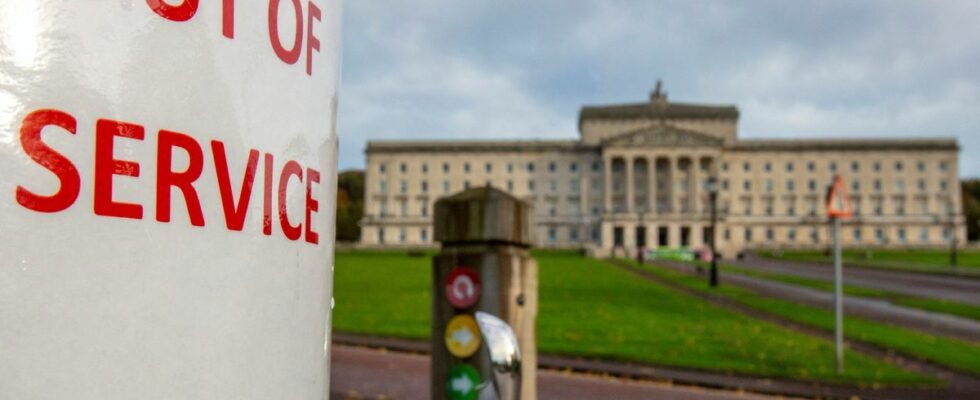London is still facing the aftershocks of the Brexit earthquake, three years later. The British government on Friday renounced its threat to call early elections in Northern Ireland, maintaining the vagueness of its intentions in the face of the political deadlock linked to the post-Brexit status.
The fate of the British province with a bloody past, bordering the European Union, was a headache during the negotiations leading to Brexit. It remains so almost three years after leaving the EU. London had given the political parties until October 28 to agree and form a new executive. But the unionists, attached to the anchoring of the province within the United Kingdom, remained adamant, as they have been since leaving local government in February.
“A strong decentralized government”
The British Minister in charge of Northern Ireland, Chris Heaton-Harris consulted all week the various communities to try to arrive at a solution, in vain. He ended up backing down. “I can now confirm that no election will take place in December or before the holidays,” Chris Heaton-Harris said in a statement.
“My aim, and what the people of Northern Ireland deserve, is the restoration of strong devolved government,” he added, without explaining how he intended to achieve this. He said he would speak next week in Parliament in London to detail “the next steps”. The political deadlock stems from the refusal of the Democratic Unionist Party (DUP), opposed to the post-Brexit protocol granting special status to the province, to participate in the local assembly of Stormont, which prevents the formation of a executive.
The specter of reunification
The latter must be shared with the Republicans of Sinn Fein, supporters of reunification with the Republic of Ireland, under the 1998 peace agreement which ended three decades of inter-community conflict which left 3,500 dead.
The last ballot, in May, was won for the first time by Sinn Fein, the former political branch of the IRA paramilitaries, reflecting the historical decline of Protestant Unionists against the Republicans, especially Catholics, and reviving the prospect of a possible reunification with the neighboring Republic. The UK government retains a legal obligation to hold elections but the timeframes so far allow for them to take place only in January. He could also choose to change the rules.
Northern Irish protocol at the heart of tensions
Irish Foreign Minister Simon Coveney welcomed London’s decision not to hold an election in December, which “creates space for progress on other issues”. Several provincial officials had warned that a new ballot was unlikely to change the impasse since Unionist participation is mandatory regardless of their outcome and they tie it to the fate of Northern Irish protocol.
This document negotiated at the time of Brexit keeps the territory within the European single market to avoid creating a physical border with the Republic of Ireland, which could revive tensions. It therefore creates a de facto customs and regulatory border with the island of Great Britain, which is unacceptable to the Unionists. “There is no firm basis for (local institutions) to function fully until Northern Irish protocol is replaced with Unionist-backed arrangements,” DUP leader Jeffrey Donaldson repeated on Twitter.
The current affairs freeze
Faced with Unionist anger, London wants to renegotiate it in depth and has started to legislate for it. But Brussels only accepts adjustments, threatening a trade war in the event of violation of this text with the status of an international treaty. In Northern Ireland itself, the majority of elected officials support the protocol, simply asking for a review of certain provisions disrupting the supply of certain products or causing excessive complications for local businesses.
For lack of a way out of the crisis, London manages current affairs in Northern Ireland but many files are frozen, in the midst of an economic and social crisis linked to soaring prices. “There is no executive, no elections, no budget, no ministers as people face a deepening economic crisis,” Sinn Fein local councilor John O’Dowd stormed on the BBC.

